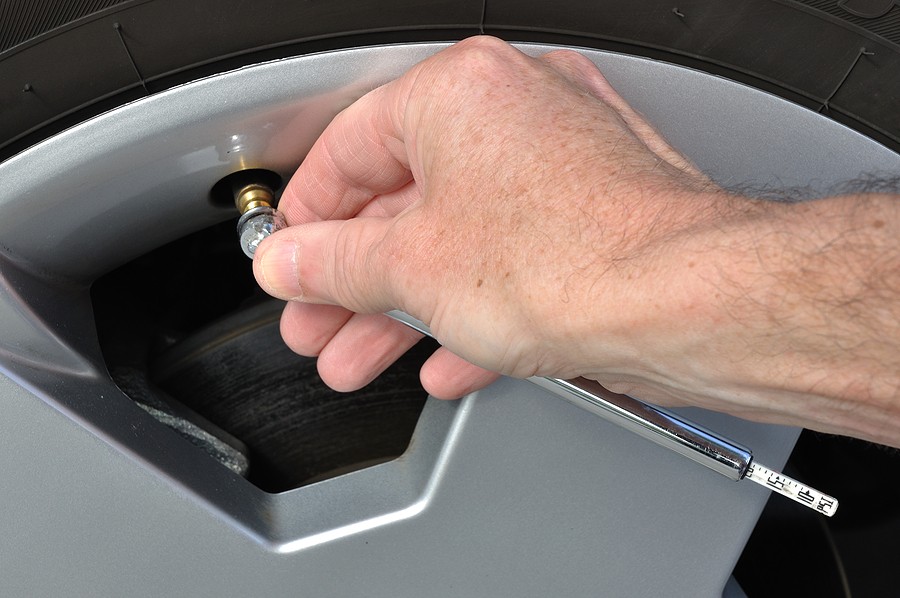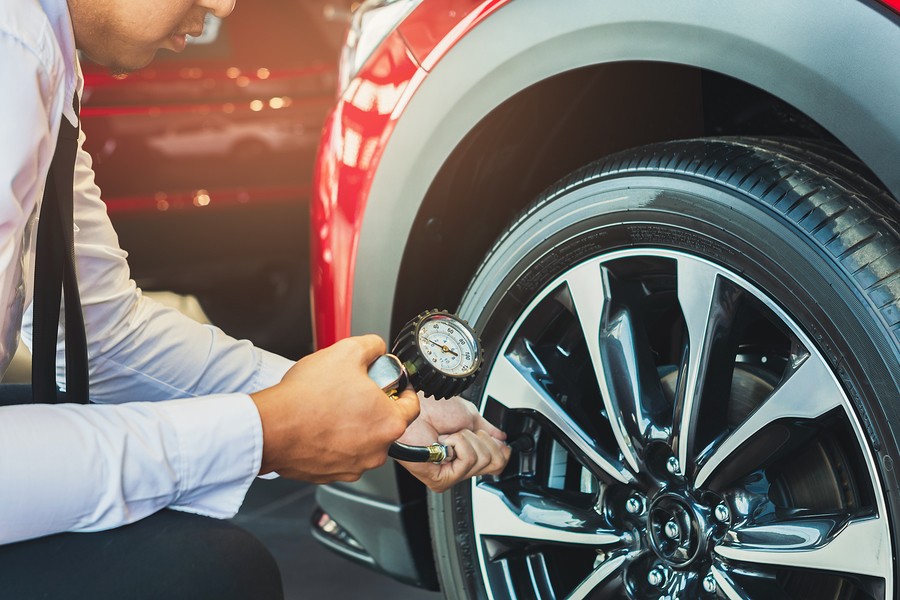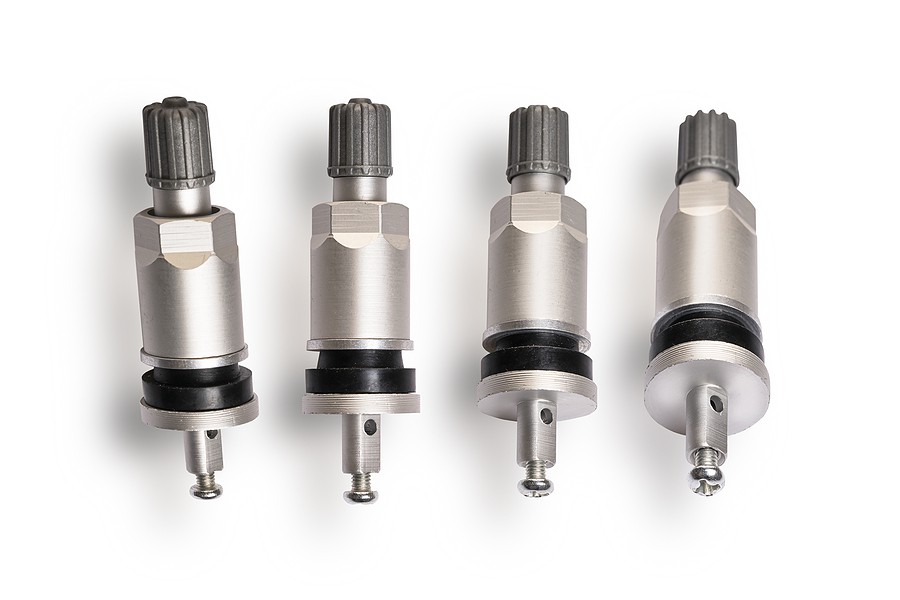To quickly identify a bad TPMS sensor without a scanner, check tire pressures manually and compare them to your car’s display readings. Look for discrepancies, as these might indicate a faulty sensor. Regular visual inspections of tires for signs of deflation can also help.
Introduction
Understanding how to detect a malfunctioning Tire Pressure Monitoring System (TPMS) sensor without a scanner is crucial for vehicle maintenance. This article guides you through simple yet effective methods to identify a bad TPMS sensor, ensuring your car's safety and performance.
Understanding TPMS and Its Importance
What is TPMS?
TPMS is an automated system designed to monitor the air pressure in pneumatic tires on various types of vehicles. It alerts you when tire pressure is too low, which could create unsafe driving conditions.
The Importance of TPMS
A properly functioning TPMS helps:
- Maintain optimal tire pressure
- Enhance road safety
- Improve fuel efficiency
- Extend tire life

Identifying a Faulty TPMS Sensor
Method 1: Manual Pressure Check
- Procedure: Use a reliable tire pressure gauge to measure each tire's pressure.
- Analysis: Compare the manual readings with your vehicle's TPMS readings. A significant discrepancy might indicate a sensor issue.
Method 2: Visual Inspection
- Look for: Uneven tire wear, signs of deflation, or continuous low-pressure warnings despite correct tire pressures.
- Action: These signs often point towards a TPMS sensor problem.
Method 3: Behavioral Observations
- Symptoms: Unusual changes in vehicle handling, unexpected drops in fuel efficiency, or frequent false alerts.
- Inference: These can be indicative of TPMS sensor failures.

Troubleshooting TPMS Sensor Issues
DIY Solutions
- Battery Check: TPMS sensors are battery-operated. A weak or dead battery might cause sensor malfunction.
- Position Check: Ensure the sensor is correctly positioned in the rim and not obstructed.
Professional Assistance
- Mechanic Visit: If DIY methods don't resolve the issue, consult a mechanic. They can perform advanced diagnostics and replace the sensor if necessary.

Personal Experience and Anecdotes
As a car enthusiast, I've experienced the frustration of a malfunctioning TPMS sensor. Once, despite correct tire pressures, my car's TPMS alert wouldn't turn off. A manual check revealed a sensor problem, which was promptly fixed by my trusted mechanic. Regular maintenance and attention to these details have since saved me from potential tire-related hazards.

Conclusion
Identifying a faulty TPMS sensor without a scanner is manageable with the right approach. Regular checks, keen observation, and timely professional help can ensure your TPMS system works flawlessly, keeping you safe on the road.

FAQs
- What is a TPMS sensor?
- A TPMS sensor monitors the air pressure inside your vehicle's tires and alerts you when the pressure drops below a certain threshold.
- How does a TPMS sensor work?
- It uses a combination of pressure readings and radio frequency technology to send tire pressure information to the vehicle’s computer system.
- Can I drive without TPMS sensors?
- While you can drive without them, it's not recommended as TPMS sensors are crucial for safety, alerting you to low tire pressure which can lead to accidents.
- How long do TPMS sensors last?
- Typically, they last around 5-7 years, largely depending on battery life.
- Can TPMS sensors be repaired?
- Generally, they are not repairable and need to be replaced when they malfunction.

- How do I know if my TPMS sensor is bad?
- Common signs include the TPMS warning light staying on, fluctuating tire pressure readings, and no change in the dashboard display even when tire pressures are altered.
- Do all cars have TPMS sensors?
- Most modern cars, especially those built after 2007, are equipped with TPMS sensors as a standard feature.
- Can tire pressure affect TPMS sensors?
- Yes, incorrect tire pressure can cause inaccurate readings or trigger the TPMS warning light.
- What causes TPMS sensors to fail?
- Common causes include battery failure, damage during tire replacement, and corrosion.
- Is it safe to drive with the TPMS light on?
- It’s advisable to check your tire pressure if the light comes on. Driving with low tire pressure can be unsafe.

- Can TPMS sensors be transferred to new tires?
- Yes, they can be transferred, but care must be taken during the tire change to avoid damaging them.
- How much does it cost to replace a TPMS sensor?
- The cost varies but typically ranges from $50 to $250 per sensor, including labor.
- Can I replace TPMS sensors myself?
- It’s possible if you have the technical know-how, but professional installation is recommended to ensure proper functioning.
- Do TPMS sensors need to be programmed?
- Yes, new TPMS sensors must be programmed to sync with your vehicle’s TPMS system.
- Can extreme temperatures affect TPMS sensors?
- Yes, very high or low temperatures can impact the accuracy of TPMS sensors.

- How do I reset my TPMS system?
- Procedures vary by vehicle model; consult your owner’s manual or a professional for the correct process.
- What is the difference between direct and indirect TPMS?
- Direct TPMS measures tire pressure directly from within the tire, while indirect TPMS uses the vehicle’s ABS system to infer pressure changes.
- Can a TPMS sensor battery be replaced?
- In most cases, the battery is sealed within the sensor and cannot be replaced separately.
- Do TPMS sensors need maintenance?
- Regular checks during tire servicing can help ensure they are functioning correctly.
- What should I do if my TPMS sensor gives false warnings?
- Have your TPMS system checked by a professional to diagnose and fix the issue.



